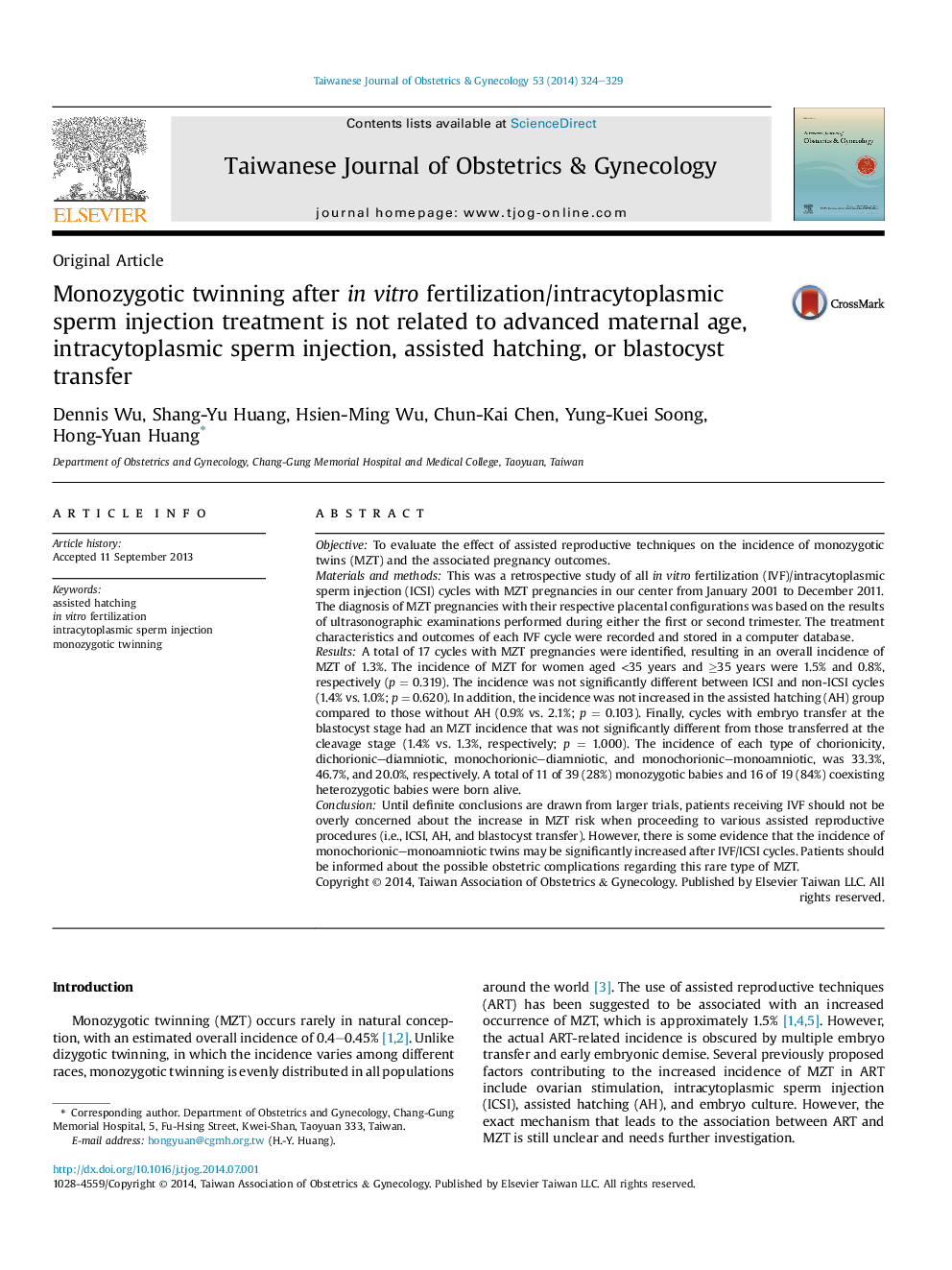| Article ID | Journal | Published Year | Pages | File Type |
|---|---|---|---|---|
| 3975200 | Taiwanese Journal of Obstetrics and Gynecology | 2014 | 6 Pages |
ObjectiveTo evaluate the effect of assisted reproductive techniques on the incidence of monozygotic twins (MZT) and the associated pregnancy outcomes.Materials and methodsThis was a retrospective study of all in vitro fertilization (IVF)/intracytoplasmic sperm injection (ICSI) cycles with MZT pregnancies in our center from January 2001 to December 2011. The diagnosis of MZT pregnancies with their respective placental configurations was based on the results of ultrasonographic examinations performed during either the first or second trimester. The treatment characteristics and outcomes of each IVF cycle were recorded and stored in a computer database.ResultsA total of 17 cycles with MZT pregnancies were identified, resulting in an overall incidence of MZT of 1.3%. The incidence of MZT for women aged <35 years and ≥35 years were 1.5% and 0.8%, respectively (p = 0.319). The incidence was not significantly different between ICSI and non-ICSI cycles (1.4% vs. 1.0%; p = 0.620). In addition, the incidence was not increased in the assisted hatching (AH) group compared to those without AH (0.9% vs. 2.1%; p = 0.103). Finally, cycles with embryo transfer at the blastocyst stage had an MZT incidence that was not significantly different from those transferred at the cleavage stage (1.4% vs. 1.3%, respectively; p = 1.000). The incidence of each type of chorionicity, dichorionic–diamniotic, monochorionic–diamniotic, and monochorionic–monoamniotic, was 33.3%, 46.7%, and 20.0%, respectively. A total of 11 of 39 (28%) monozygotic babies and 16 of 19 (84%) coexisting heterozygotic babies were born alive.ConclusionUntil definite conclusions are drawn from larger trials, patients receiving IVF should not be overly concerned about the increase in MZT risk when proceeding to various assisted reproductive procedures (i.e., ICSI, AH, and blastocyst transfer). However, there is some evidence that the incidence of monochorionic–monoamniotic twins may be significantly increased after IVF/ICSI cycles. Patients should be informed about the possible obstetric complications regarding this rare type of MZT.
